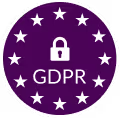Perfect matches are hard to find in any relationship, but for professional skills, there are a lot of people depending on it to work out. Putting employees and training experts together for a productive collaboration is important for both people, but also for coworkers, managers, and the organization as a whole.
What Is a Perfect Match in an L&D Context?
Perfect matches in a learning and development setting have multiple dimensions. (Note: “L&D experts” includes coaches, mentors, and technical trainers.)
- Skills. For every “skill”, there are many skill elements. An employee who requires upskilling, especially for soft skills, often wants to focus on a particular aspect. A common example of this is communication, which includes written, spoken, presentational, and interpersonal facets. An expert should have the ability to instruct in the required skill element, so (for example) a “communication coach” must also be a specialist regarding the element in question.
- Hierarchy. Some experts focus on executives, while others have experience in mentoring new employees. The choice of expert must consider their ability to instruct at the relevant hierarchical level.
- Personality. We each have certain characters, and some expert-employee combinations get along better than others.
- Generation. Different generations tend to prefer different styles of learning. For example, younger generations like gamification and micro-lessons. The expert that you are researching must have the ability to instruct employees of the relevant age group.
- Setting. Experts need to match the organization in terms of setting. For instance, if employees in an L&D program are remote workers, the expert must have the proper materials and method for an online learning initiative.
Why Are Perfect Matches Critical?
Employees don’t need to love their coach, mentor, or trainer, but it helps if they really enjoy working with them. After all, chemistry between teacher and student is always important, and is a vital part of evaluating training satisfaction. A good relationship during an L&D course, which can be affected by the “perfect match” factors listed above, helps in many ways:
- Better transfer of knowledge as the student pays more attention
- A sense of connection that motivates the employee to persist in the course
- Greater chance of honest feedback
- Absence of negative feelings that can interfere with learning
Achieving Perfect Matches for Professional Skills Training
Even though a perfect match is about the expert, the process begins with you. To make sure that a program starts off with the best chance of success, here are a few steps you should take:
Research Areas of Expertise
After a skills gap analysis for the employees in your talent development program, you should have a list of courses. Make sure that it covers the specific elements which the worker and organization need (see the above “communication” example).
Use the Right Search Platform
The next step is to find an expert who can teach those granular skills. There was a time when sourcing experts boiled down to a Google search. But, with technologies that use expert-matching algorithms, the process is faster and more accurate. Platforms like Growthspace have a global reach and extensive skills taxonomy that allow you to identify L&D professionals with a very wide range of specialties.
Get a Feel for Background and Experience
On their website, LinkedIn page, or other medium, any decent expert will list their professional history, the kinds of companies that they work with, and some type of reference to customer reviews. Pay attention to:
- Education, certifications, mentions in the media
- Client names (if available) and whether they are large, well-known companies
- Years in the profession
- Client quotes that are hopefully from recognized personalities or organizations
Explore Social Presence
It’s an obvious move for professionals today to maintain a social media presence. The catch for an HR person is to separate the wheat from the chaff. When researching a prospective engagement, keep an eye on the quality of an expert’s messaging. Are they original, revealing, clear, and informative? Or are their social media posts all about fancy editing or personal charm?
Social media can also reveal if the expert has an industry presence. You might notice that they are speakers at a popular conference or have articles in a notable publication.
Ask Insightful Questions
By this point, you may have created a short candidate list. Now it’s time to get in touch with these experts and compare the image to the reality. You can start by confirming the impressions made by your research and asking for references. After that, you should consider discussing their history with clients, teaching methods, preferred subjects, and availability. Make sure to notice both the content of their answers and the way in which they reply. If you sense hesitation, or that something is being covered up, look into it.
Find Your Perfect Match with Growthspace
Identifying and connecting with L&D experts can be a challenge, especially for large organizations. Sourcing coaches, external mentors, and trainers for hundreds of employees, each with their own skill requirements, is virtually an impossible task. Plus, you need to know how to find a perfect match that ensures an effective experience.
That’s why there’s Growthspace. The platform can connect you with hundreds of vetted and recommended experts from around the world. Collectively, they cover almost every conceivable professional skill. Growthspace’s evaluation method means that only top-rated experts stay on the platform, maximizing the chance of a perfect match, every time.
Ready to turn insights into impact?

















